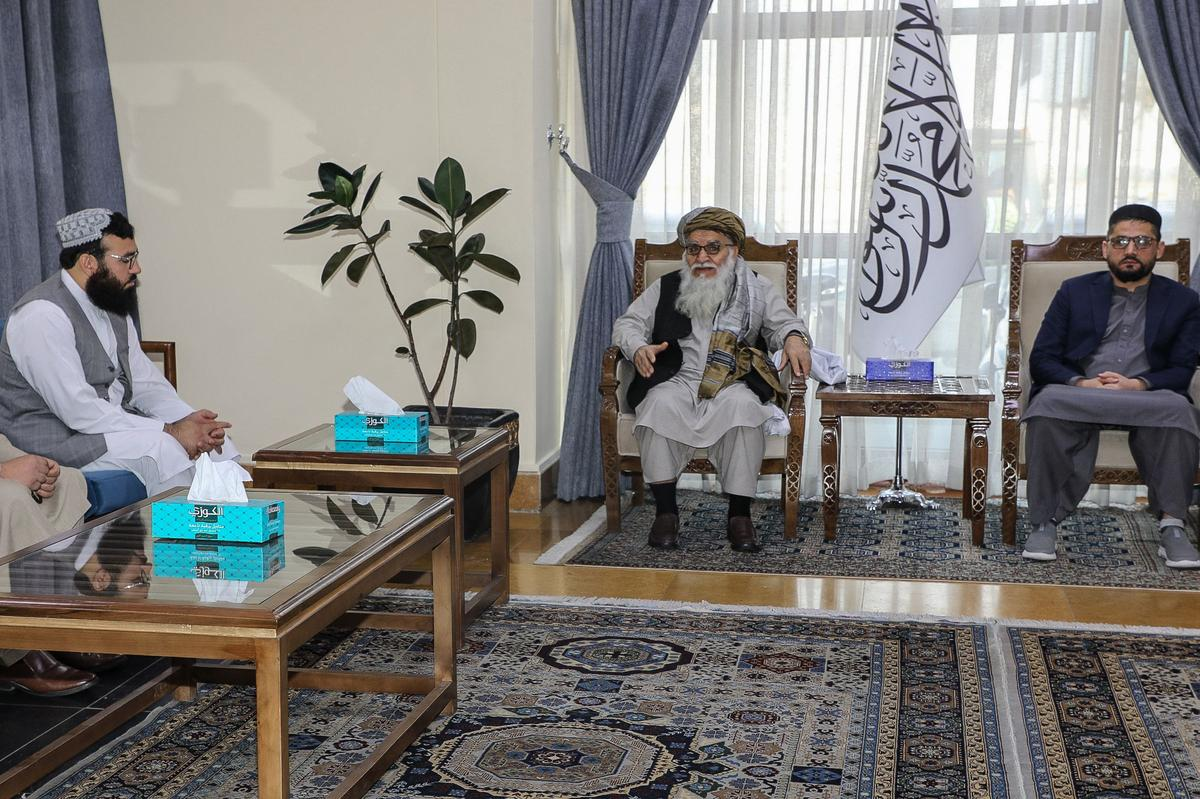Afghanistan will be represented at a UN climate summit for the first time since the Taliban took control in 2021, marking a new chapter in the country’s engagement with international environmental issues.
Ranked as the sixth most vulnerable nation to climate change, Afghanistan’s participation at COP29 underscores the urgent need for climate action in a country deeply affected by environmental crises.
Despite international isolation, the Taliban government has been determined to take part in these vital talks, emphasizing that climate issues should not be entangled with political disputes.
Afghanistan’s Push for International Climate Participation
Since the Taliban’s takeover in 2021, Afghanistan has faced significant barriers to international recognition, and no state has formally acknowledged the Taliban government. This lack of recognition initially prevented the country from attending past UN climate summits, such as those in Egypt and the United Arab Emirates.
However, this year, Azerbaijan extended an invitation to Afghanistan for COP29, which takes place from November 11 to 22 in Baku. This move marks a turning point for Afghanistan, as the country’s National Environmental Protection Agency (NEPA) has been pushing for climate participation, arguing that global environmental issues should be above politics.
Read : Meryl Streep Said a Female Cat Has More Freedom Than a Woman in Afghanistan
NEPA officials have highlighted severe vulnerability to climate impacts, such as extreme droughts and flooding, which have destabilized livelihoods and agriculture across the nation. Speaking on the subject, NEPA’s deputy head Zainulabedin Abid said, “Climate change is a humanitarian subject.
Read : Be Aware Before Crossing the Line: Top Ten Most Dangerous Borders Around the World
We have called on the international community not to relate climate change matters with politics.” This statement reinforces NEPA’s stance that, despite the Taliban’s contentious political position, Afghanistan’s people deserve support in combating climate-related crises. With the invitation from Azerbaijan, Afghanistan now has the chance to voice its concerns and needs on a global platform.
Climate Change Impacts on Afghanistan: An Urgent Challenge
A fragile environment and ongoing socio-economic challenges make it particularly vulnerable to climate change. A largely agrarian society, the Afghan population relies heavily on agriculture for survival. However, recurring climate events, including prolonged droughts, flash floods, and diminishing agricultural productivity, are threatening the livelihoods of millions.
The United Nations Development Programme (UNDP) has consistently called for increased international support to build Afghanistan’s resilience to these environmental threats, as climate change exacerbates the country’s economic hardships and instability.
One striking example of climate-related challenges occurred in May 2023, when flash floods claimed hundreds of lives and devastated agricultural areas. As nearly 80% of Afghans depend on farming, these events have devastating consequences on both food security and economic stability.

Despite Afghanistan’s minimal contribution to global emissions (only 0.08% as of a 2019 report), the country remains disproportionately impacted by climate change. “It affects all aspects of our life,” said Ruhollah Amin, NEPA’s climate change director, illustrating the urgency for country to address climate resilience and mitigation at COP29.
Prospects for Climate Cooperation Under Taliban Rule
Afghanistan’s attendance at COP29 raises important questions about the role of politically isolated governments in global climate discourse. Although Azerbaijan reopened its embassy in Kabul earlier this year, it, like other nations, has not formally recognized the Taliban government.
However, the Afghan delegation’s participation as an observer at COP29 signals that climate concerns may create pathways for dialogue, even when formal diplomatic ties are absent. NEPA has been working to update Afghanistan’s Nationally Determined Contributions (NDC), which outline the country’s climate goals as part of the Paris Agreement.
Despite uncertainty over whether the UN Framework Convention on Climate Change (UNFCCC) will accept Afghanistan’s updated NDC, NEPA remains committed to finalizing this document.
NEPA director-general Mawlawi Matiul Haq Khalis has been a vocal advocate for country’s inclusion in climate talks. Having criticized the country’s exclusion from the 2022 COP summit in Dubai, he urged international bodies to allow Afghanistan’s participation in Baku.

Afghanistan’s climate representatives are not only seeking a voice in discussions but also compensation for the damages caused by climate change, which have had profound impacts on the Afghan people. The Taliban government sees this participation as a chance to secure international support for environmental projects that were put on hold following the 2021 political transition.
As Afghanistan faces severe climate-induced hardships, the UN and other international organizations have acknowledged the need for global assistance to enhance the country’s climate resilience. This recognition may pave the way for more inclusive discussions and cooperative solutions, even in politically complex contexts.
While there are still doubts about the extent of Afghanistan’s role at COP29, the Taliban’s efforts to participate demonstrate an acknowledgment that environmental challenges cannot be solved in isolation.

